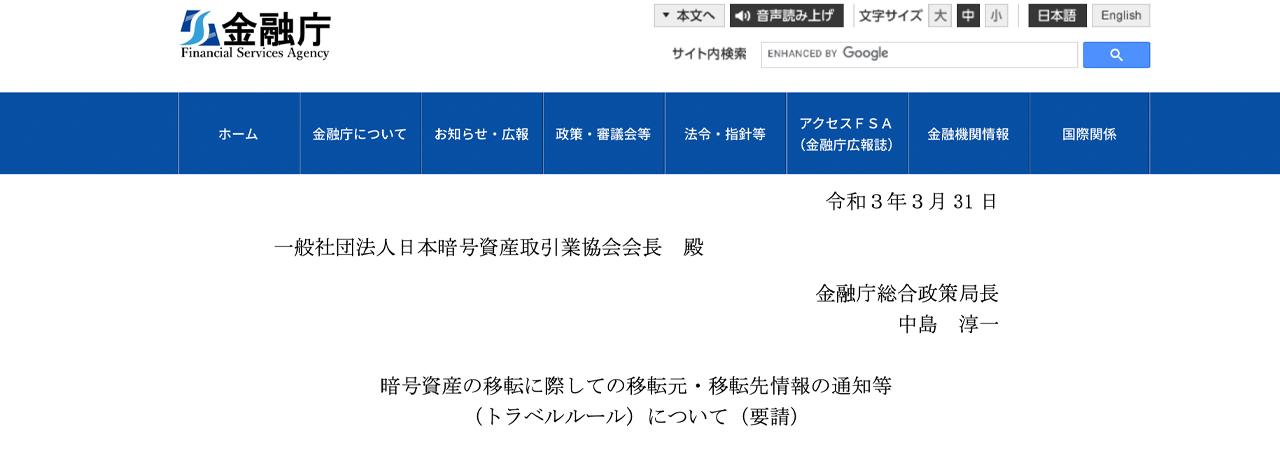
Japan’s Financial Services Agency (FSA) has revealed that the regulating body will adopt the Financial Action Task Force (FATF) “travel rule” and standards toward the cryptocurrency industry throughout the nation. Meanwhile, FATF’s rule has been considered far-reaching and the organization Global Digital Finance and the company’s advisory member, Malcolm Wright, hopes industry innovators will help shape the regulatory conversations.
Japan’s Financial Services Agency Is Ready to Follow FATF’s Lead
Japan, the island country in East Asia with its 125 million people has seen cryptocurrency spread throughout the country since the early days, with a myriad of exchanges residing in the nation-state like the now-defunct Mt Gox. On Wednesday, the Japanese regulator the Financial Services Agency (FSA) announced that the country plans to adopt the Financial Action Task Force (FATF) guidelines toward virtual assets (VAs) and virtual asset service providers, otherwise known as VASPs. On March 24, Bitcoin.com’s newsdesk reported on the latest FATF guidance, which applies regulatory standards toward decentralized exchanges (dex), defi, and NFTs.

The FSA announcement stemming from Japan says that it would like the Japan Virtual and Crypto Assets Exchange Association (JVCEA) to cooperate with the FATF guidelines. The rule will be adopted throughout the island country by 2022, the FSA also noted. Japanese authorities have been moving right alongside the FATF’s recommendations and the neighboring nation of South Korea has also followed the guidelines. South Korean officials have been leveraging the National Tax Service (NTS) and the South Korea Financial Services Commission initiated AML laws toward crypto in March.
Global Digital Finance Advisory Member Asks Organizations to Respond and Join the Conversation
Malcolm Wright, a member of the global association called Global Digital Finance (GDF), an organization that aims to advocate and accelerate the best practices for digital assets, hopes VASPs get involved with the regulatory conversation.
According to GDF, the global money laundering and terrorist financing watchdog’s consultation closes on April 20th and GDF is sending a response. The association says that other organizations can “contribute to GDF’s response” and Wright has commented on the situation. Malcolm Wright, is GDF’s advisory council chair and co-lead of the AML working group.
“This latest consultation sets out guidance for the industry and regulators that is far-reaching, covering not just spot exchanges and custody but also decentralised finance (defi), stablecoins, and peer-to-peer (P2P) transactions, all of which may fall within the regulatory perimeter,” Wright stressed. “We have a duty as responsible innovators to respond and help ensure the future is shaped commensurate with the risks that each ecosystem poses,” GDF’s advisory council chair added.
What do you think about Japan planning to adopt the latest FATF guidelines and “travel rule?” Let us know what you think about this subject in the comments section below.
Image Credits: Shutterstock, Pixabay, Wiki Commons, FSA Japan,
Disclaimer: This article is for informational purposes only. It is not a direct offer or solicitation of an offer to buy or sell, or a recommendation or endorsement of any products, services, or companies. Bitcoin.com does not provide investment, tax, legal, or accounting advice. Neither the company nor the author is responsible, directly or indirectly, for any damage or loss caused or alleged to be caused by or in connection with the use of or reliance on any content, goods or services mentioned in this article.
